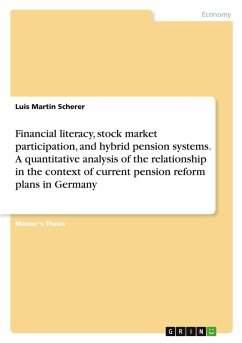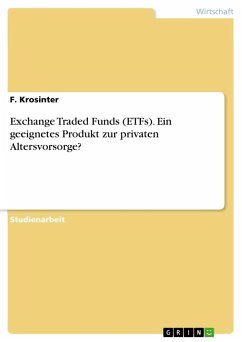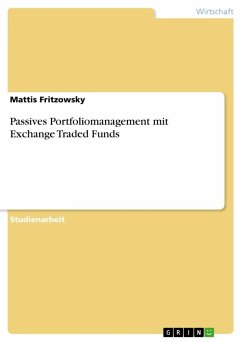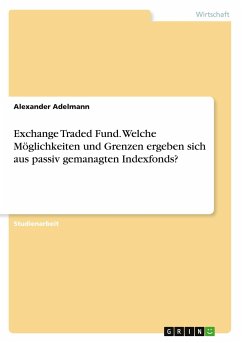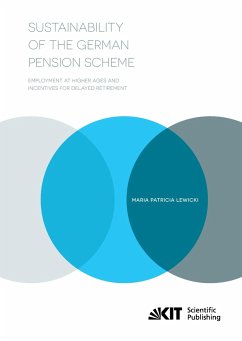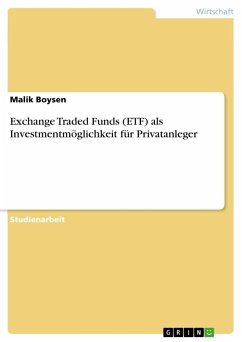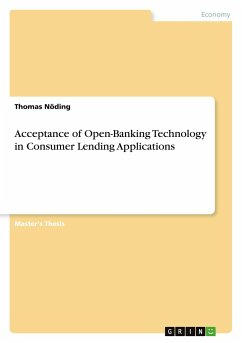
Exchange Traded Fund Savings Plans as Old-Age Provision Tool in Germany

PAYBACK Punkte
0 °P sammeln!
Doctoral Thesis / Dissertation from the year 2021 in the subject Economics - Finance, grade: 1,3, Mendel University, language: English, abstract: Future German pensioners will face a pension gap in retirement age if they base their income exclusively on the statutory pension. Conventional private pension alternatives are not lucrative, but they are still the most widely used. Exchange-traded funds (ETFs) have features that make them particularly attractive for pension provision. The aim of this dissertation is to discover which factors influence the acceptance formation process and thus the us...
Doctoral Thesis / Dissertation from the year 2021 in the subject Economics - Finance, grade: 1,3, Mendel University, language: English, abstract: Future German pensioners will face a pension gap in retirement age if they base their income exclusively on the statutory pension. Conventional private pension alternatives are not lucrative, but they are still the most widely used. Exchange-traded funds (ETFs) have features that make them particularly attractive for pension provision. The aim of this dissertation is to discover which factors influence the acceptance formation process and thus the usage of ETFs. Therefore, a model is developed that is based conceptually on the widely known technology acceptance model (TAM) and theoretically on the results of a comprehensive literature analysis, which summarises already identified obstacles within old-age provision. This model is then tested using an online survey on future German pensioners aged between 19 and 59 years (n=615). The descriptive statistics are then calculated for the recorded data, and subsequently, the relationships within the variable model are analysed for significant dependencies. The results show that the assumed external variables have an influence on the acceptance of ETFs. In particular, the variable of financial literacy as an indicator of a person¿s general financial knowledge turns out to be of overriding importance within the acceptance formation process. Furthermore, the results show that the use of an ETF is well recognised, but that it is still too complex to obtain information or acquire an ETF, which ultimately hampers acceptance formation, and thus the use. Finally, two concepts are developed that would have a positive influence on acceptance in different ways; they focus on different variables and behavioural patterns that still act as obstacles, thereby increasing the overall use of ETFs in Germany.




